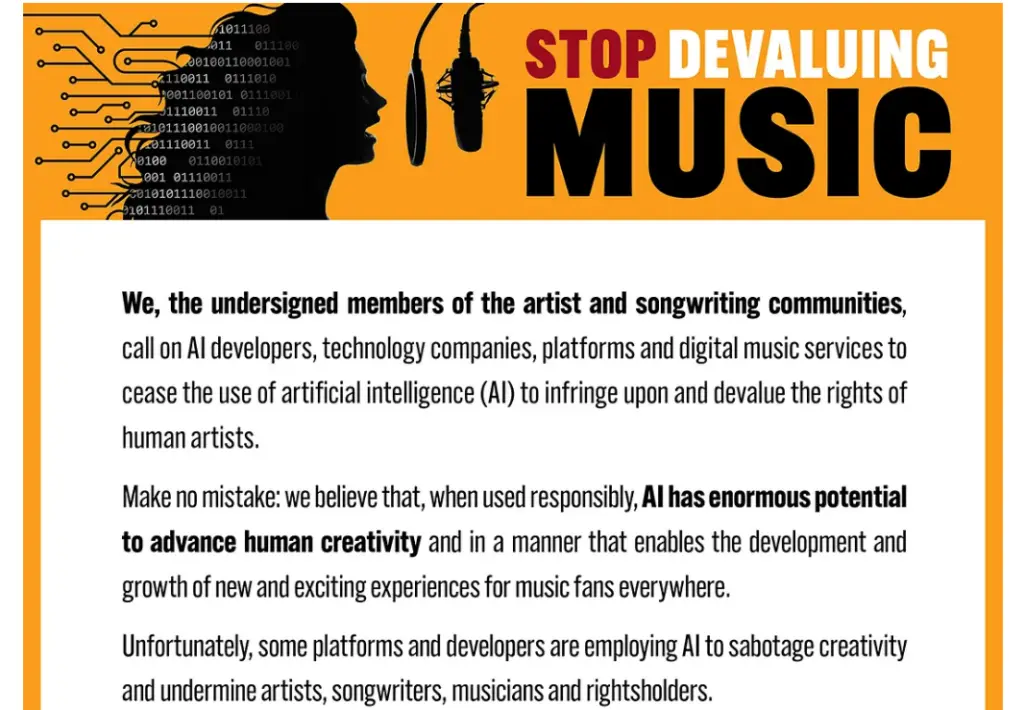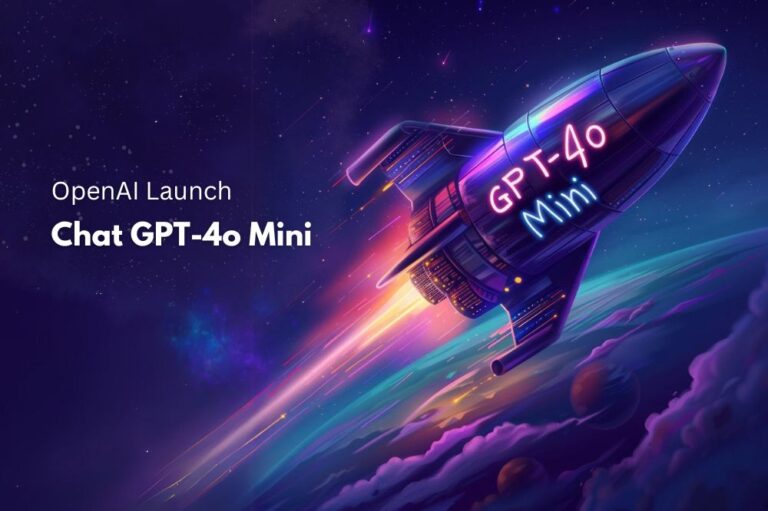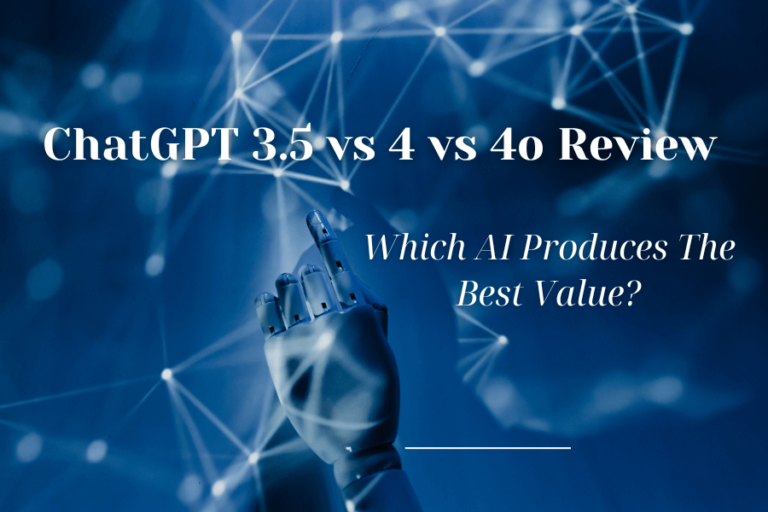200+ Artists Warn about Generative AI Meddling in Music
Over 200 artists and music artists such as Billie Eilish, Nicki Minaj, Pearl Jam as well as R.E.M., Chase & Status and Jon Bon Jovi were among those who pushed for the long pause of AI’s escalating power over the music sector.
The Artist Rights Alliance has published the letter addressed to AI developers, tech companies, and digital streaming platforms among others.
In addition to warning about AI’s impact on musical creativity, the letter discusses the erosion of performers’ rights: “This crime against the human intellect has to be stopped immediately.” Al must be guarded against the predatory use of stealing professional artists and using their voice and appearances, violating creation rights and destroying the music ecosystem.
In addition, another claim is that some of the most dominant tech companies use AI to train models on artists’ work without their expertise and give preference to AI-generated sounds over human-made.
The letter concludes with a call to action, prompting those involved in AI and music industries to commit not to build or deploy AI music-generation technologies, which might replace human craftsmanship or affect the artists’ remuneration.
“We challenge all Al developers, technology firms, platforms, and digital music services to swear that they will not make or apply Al music-generation technology, content or tools that endanger or displace human creativity of songwriters and artists or deny us fair payment for our work.”

Musicians are about generative AI
Let us now discuss what the letter has pointed out to us.
For instance, TikTok is introducing AI music creation tools that thwart labels like Universal Music Group (UMG) from paying artists via platforms, which has led to Universal Music Group pulling out its catalog and arguing that TikTok is undermining artists.
Google allegedly has developed an audio synthesis model, trained on a large corpus of music, including tracks from the major labels without achieving permissions from the rights holders.
“Demis [Hassabis, Google Deepmind’s CEO], and his team presented a research project about genAI and music, and my head became a detached part of my body.” Said Lyor Cohen, YouTube and Google’s global head of music. I spent a few days in London, being amazed by the forthcoming of genAI music over the edge and smiling when it dawned to me that genAI music is no longer fiction — it is a reality.
While there, the project can take advantage of the existing AI music platforms, such as Suno that have the capability to generate amazingly high-quality audio from text prompts.
Limewire, a relatively new company, also came up with an AI music platform, which has, among other things, built-in publishing and monetization features.
Ed Newton-Rex, who was an audio engineer at StabilityAI but then started the ethical generative AI non-profit FairlyTrained, conducted some tests that it seems brought out Suno, which is a cheap AI lab that can produce something very close to the melodies of famous artists like Eminem or even Queen’s “Bohemian Rhapsody”.
Newton-Rex proclaims in Music Business Worldwide that he and others often find that Suno outputs music that is almost the same as copyrighted material. This is true across both the melody and the chord sequences, instrumental parts and even the lyrics. In this post, I will share some examples and evaluate their meaning by myself.
This involved prompts like:
“For this song, I took advantage of Suno’s second song creation option, which allows you to input your own lyric tips”. Here I depict the exact lyrics of Dancing Queen. And you can do so by just hearing the lyrics and the style of music as well.
Style: 70s pop
Title: prancing queen
Lyrics: [The entire song Dancing Queen]
Result:”
Although text might be the most voluminous information currently on the planet, lyrics and melodies are quite easy to determine who the original artist is, and music-related copyright disputes tend to be more aggressive and straightforward.
Will artists like singers and painters start a suite of bitter lawsuits against key players like Suno in the music industry?
Will the music industry have a fake AI-created music market that is deployed through well-known streaming platforms such as Spotify?
AI companies may want to be on the right side of the giants like Disney and Universal or getting bad press from artists such as Taylor Swift might mean chaos.
It is unlikely to be a question of when, but rather if that happens.








